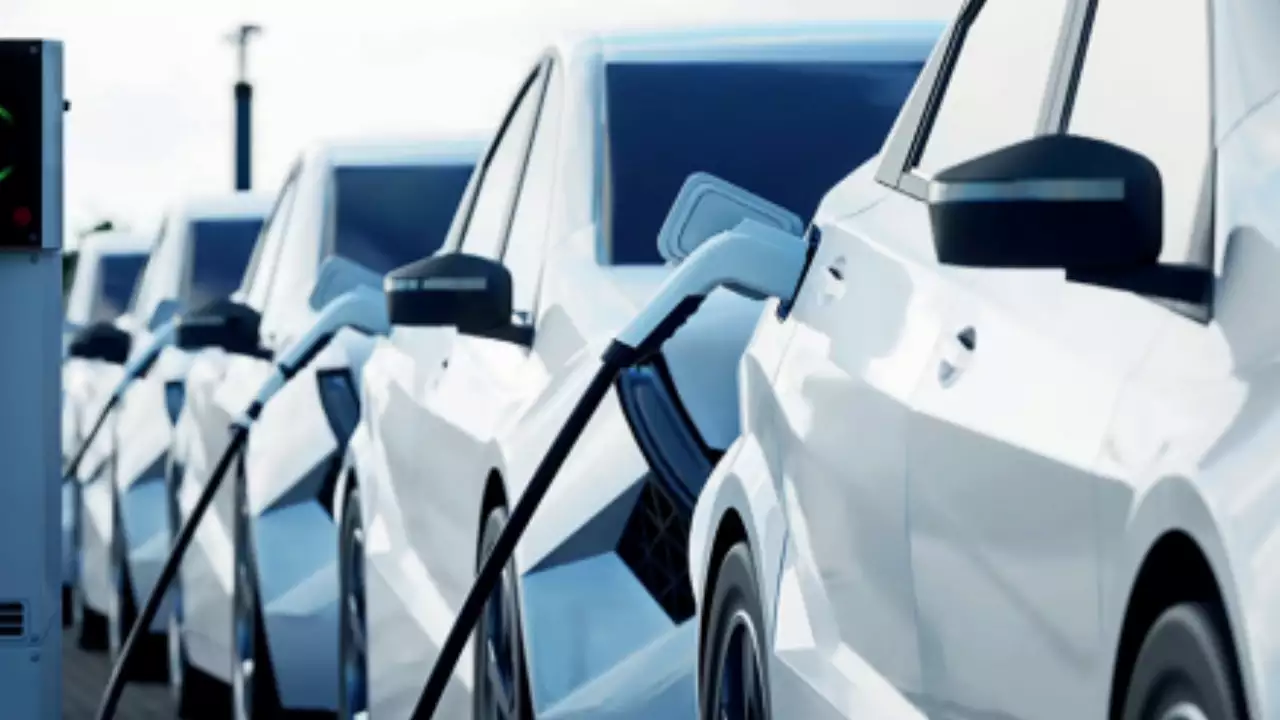
A slowdown in EV adoption has potentially huge implications for the energy transition. It also has ramifications for the many financial institutions that have pledged to decarbonize the loans and investments they make.
For lenders such as Bank of America Corp., HSBC Holdings Plc and JPMorgan Chase & Co. that have committed to reduce emissions associated with their financing activities in high-carbon sectors, the auto industry seemed to have a relatively clear path. Unlike certain hard-to-abate industries where getting to net zero relies on scaling up nascent technologies, a widely held assumption was that government incentives and consumer demand for EVs could be counted upon for a smooth transition.
By extension, banks could just sit back and wait to hit their targets without much effort. But now, recent statements from many of the world’s biggest auto manufacturers have given bankers cause to question that strategy.
Ford Motor Co., for example, is retrenching. The automaker is delaying new electric vehicles and cutting prices, having called EVs “the main drag on the whole company right now.” Ford has predicted EV losses this year of as much as USD 5.5 billion.
Mercedes-Benz Group AG, which had planned to go all-electric in certain markets by the end of the decade, now says it will make combustion-engine and hybrid vehicles “well into the 2030s.” Meanwhile, Volkswagen AG has walked back its ambitious EV plan, too, with its VW brand also planning to sell more plug-in hybrids as EV sales decelerate.
Carmakers are feeling the pain of still-high inflation, muted economic growth in much of Europe and a protracted recovery in China. At the same time, an end to lucrative subsidies are pushing up EV prices, which, together with gaps in charging infrastructure, are limiting interest from potential buyers.
While all of this may complicate the plans of lenders who bet big on the EV market, not all of the news is grim.
“Despite the current announcements, we understand that the EV trend is unstoppable in the medium term and we keep relying at this moment on our 2030 target,” said Antoni Ballabriga, global head of sustainability intelligence and advocacy at Banco Bilbao Vizcaya Argentaria SA.
A reason for that may be that, while established automakers are losing market share, EV-only automakers’ share of global new passenger vehicle sales is increasing. Another positive factor is the underlying fundamentals for manufacturing EVs are looking good, according to Daan Walter, a principal in the strategy team at energy and climate nonprofit RMI. Costs for critical minerals and batteries have come down significantly in the past 18 months, while current trends in the EV market are actually ahead of what the International Energy Agency says is necessary for net-zero alignment.
“The current trend actually is going faster than net zero,” Walter said. “It’s one of those glimmers of hope that we have in the transition.”
Road transportation accounts for about 15% of greenhouse gas emissions, making the switch to cleaner vehicles a central pillar of efforts to meet climate-change mitigation targets. Decarbonizing the auto sector also is critical to banks that have committed to net-zero financed emissions and which count the likes of Ford and Volkswagen among their biggest clients.
But lenders looking to buttress climate bona fides will need to think global. They will need to learn “not to just look under the western streetlights,” Walter said, because China is far ahead of the West in EV development.
Almost 60% of plug-in car sales will be in China this year, while growth in Europe and the US will slow, according to BloombergNEF. The Biden administration is in part responding to these dynamics by introducing sweeping tariff increases for a range of Chinese imports, including EVs and lithium-ion batteries, as the US seeks to expand domestic production capacity.
The EV slowdown in Europe also is “very likely” to result in “policy intervention in response to China and eastern Asian automakers ascendancy,” said Mahesh Roy, director of investor strategies at the Institutional Investors Group on Climate Change.
For banks, it’s a reminder that the achievement of their own targets are very much contingent on the economics and the politics of the transition.
Disclaimer: The copyright of this article belongs to the original author. Reposting this article is solely for the purpose of information dissemination and does not constitute any investment advice. If there is any infringement, please contact us immediately. We will make corrections or deletions as necessary. Thank you.





